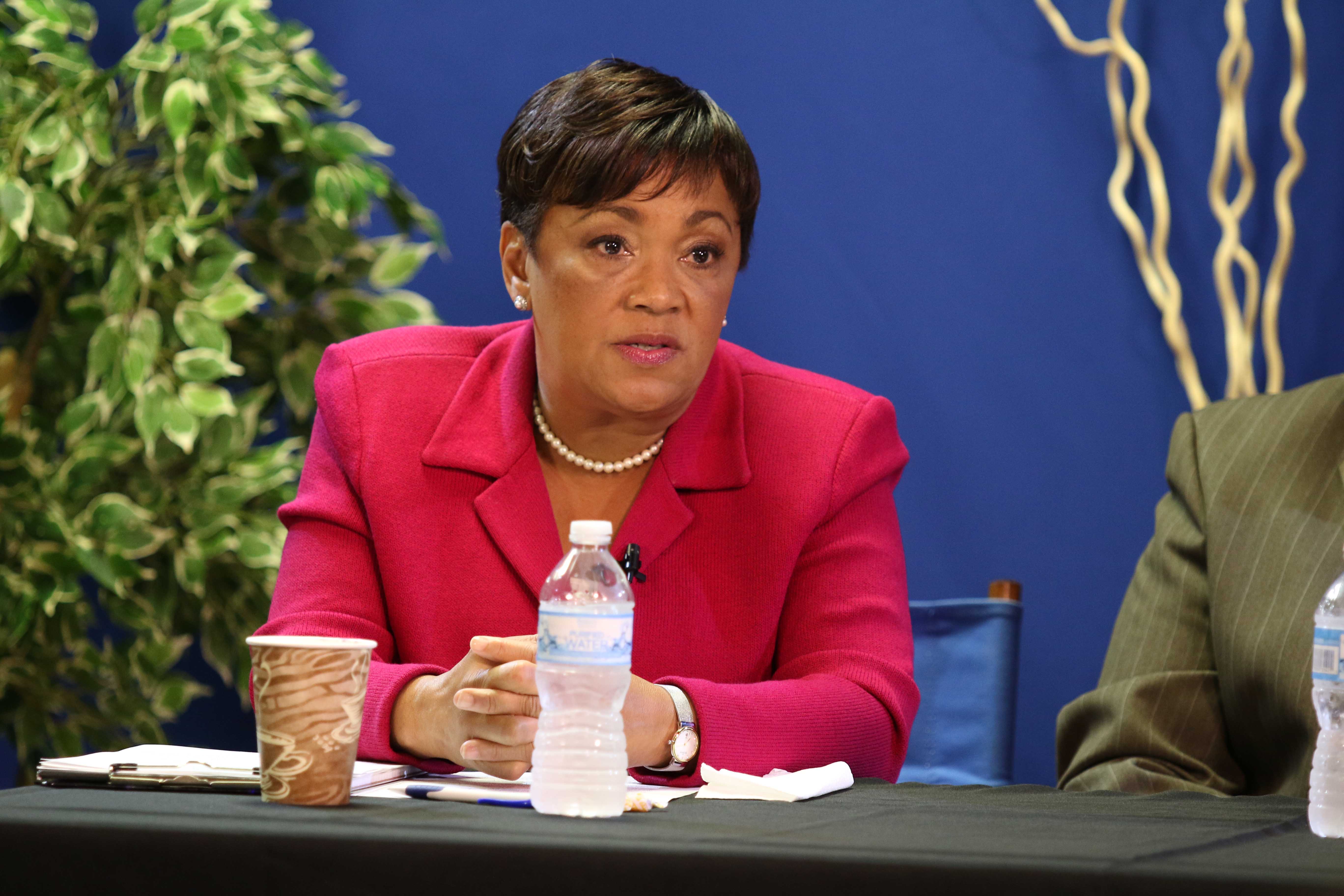
New Haven’s mayoral race sprung to life Monday night, as Mayor Toni Harp met her two challengers — Sundiata Keitazulu and Ron Smith — for a televised debate.
Sitting side by side in the Citizen’s Television Network studio on State Street, the three mayoral candidates took turns discussing the issues facing the city. Unemployment and education took center stage, with the candidates butting heads over Harp’s recent election to the Board of Education presidency. The debate, moderated by New Haven Independent Editor Paul Bass ’82, marks the first time all three candidates have come together during this year’s relatively quiet campaign season.
Harp’s challengers face challenging odds in their bids for the mayor’s office. Smith, a former alder and city clerk, is a constant on the New Haven political scene. Keitazulu, who was born and raised in New Haven, served 10 years in prison for selling cocaine but now runs a plumbing business in Newhallville. Smith and Keitazulu, who will both run unaffiliated with a political party, each had to collect 208 petition signatures to enter the November race.
Growth, taxes and jobs were among the most-discussed issues at the debate. Harp pointed to the 4.4-percent decline in New Haven’s unemployment rate since 2013 as evidence of her strong mayoral record. She also cited her support for economic-development programs like New Haven Works, which connects city residents with jobs, and the Small Business Academy, which graduated its inaugural class last month.
The candidates took divergent stances on taxation, an issue that has vexed city homeowners in recent years.
Harp said her experience in state politics — including over two decades serving as a state senator — makes her uniquely suited to deal with the budgetary difficulties New Haven faces. She said the city will have to rely on assistance from Hartford in the coming years.
“We can’t tax our way out of any problems that we have, we have got to rely on the state,” she said. “I think one of the things that I bring to the table is that I know how the state works.”
Smith said tax rates have risen to intolerable levels, forcing some families to relocate and leaving others in financial dire straits.
Keitazulu, meanwhile, explicitly stated that he would raise taxes as mayor.
“Without raising taxes, the job’s not going to get done,” he said. “Everyone in this building right now knows it costs money to get the job done.”
Keitazulu centered most of his responses on job creation. A lack of jobs, he said, is at the root of many of the problems the city faces.
He called for job training programs in schools and prisons in addition to instituting Spanish lessons in public schools from kindergarten to eighth grade.
“The only way we’re going to address these issues, honestly and truly, is by funding effective education programs — job training programs in our schools,” he said in a response to a question about economic growth and gentrification.
Harp’s role on the Board of Education provided the night’s starkest fault line.
Harp was recently elected president of the Board of Education, a body whose members are mostly appointed by the mayor. Critics have maligned her election as a conflict of interest.
Smith and Keitazulu echoed those critics. Keitazulu said Harp’s role as president is an issue, encouraging her to step down from the position — a sentiment Smith supported. But Harp said she decided to serve as president in order to take a leading role in the effort to improve education in the city. Test scores have been stagnant for over a generation, she said, and the knowledge-based economy means that education is more important than ever before.
Audience reaction to the debate was largely positive. Omari Caldwell, a New Haven high school student, said he thought Harp shone, but that Smith appeared the most “charismatic” of the trio.
George Mention, a Harp supporter, said that while Smith stood out, all candidates performed well.
“It was like a heavyweight boxing match,” he said. “They came out swinging — they talked about the key issues that matter in the city.”







